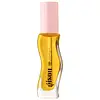What's inside
What's inside
 Key Ingredients
Key Ingredients

 Benefits
Benefits

 Concerns
Concerns

 Ingredients Side-by-side
Ingredients Side-by-side

Polyglyceryl-2 Isostearate/Dimer Dilinoleate Copolymer
EmollientCaprylic/Capric Triglyceride
MaskingMacadamia Ternifolia Seed Oil
EmollientBixa Orellana Seed Oil
EmollientHelianthus Annuus Seed Oil
EmollientGlycine Soja Oil
EmollientTocopherol
AntioxidantParfum
MaskingSimmondsia Chinensis Seed Oil
EmollientArgania Spinosa Kernel Oil
EmollientHoney Extract
HumectantHippophae Rhamnoides Oil
EmollientRosa Canina Fruit Oil
EmollientOlea Europaea Fruit Oil
MaskingCamellia Japonica Seed Oil
EmollientLimnanthes Alba Seed Oil
Skin ConditioningPropolis Extract
Skin ConditioningRosmarinus Officinalis Leaf Extract
AntimicrobialPolyglyceryl-2 Isostearate/Dimer Dilinoleate Copolymer, Caprylic/Capric Triglyceride, Macadamia Ternifolia Seed Oil, Bixa Orellana Seed Oil, Helianthus Annuus Seed Oil, Glycine Soja Oil, Tocopherol, Parfum, Simmondsia Chinensis Seed Oil, Argania Spinosa Kernel Oil, Honey Extract, Hippophae Rhamnoides Oil, Rosa Canina Fruit Oil, Olea Europaea Fruit Oil, Camellia Japonica Seed Oil, Limnanthes Alba Seed Oil, Propolis Extract, Rosmarinus Officinalis Leaf Extract
Polyglyceryl-2 Isostearate/Dimer Dilinoleate Copolymer
EmollientDilinoleic Acid/Propanediol Copolymer
EmollientVitis Vinifera Seed Oil
EmollientCarthamus Tinctorius Seed Oil
MaskingHelianthus Annuus Seed Oil
EmollientMauritia Flexuosa Fruit Oil
Skin ConditioningVaccinium Myrtillus Seed Oil
Skin ConditioningMel
EmollientOenothera Biennis Oil
EmollientRosa Canina Fruit Oil
EmollientTocopherol
AntioxidantEthylhexyl Palmitate
EmollientTrihydroxystearin
Skin ConditioningSodium Hyaluronate
HumectantGlucomannan
Skin ConditioningAroma
Calendula Officinalis Flower Extract
MaskingDaucus Carota Sativa Root Extract
Skin ConditioningCitrus Aurantium Bergamia Fruit Extract
Skin ConditioningPropolis Cera
AntiseborrhoeicCitronellol
PerfumingGeraniol
PerfumingLinalool
PerfumingLimonene
PerfumingCitral
PerfumingPolyglyceryl-2 Isostearate/Dimer Dilinoleate Copolymer, Dilinoleic Acid/Propanediol Copolymer, Vitis Vinifera Seed Oil, Carthamus Tinctorius Seed Oil, Helianthus Annuus Seed Oil, Mauritia Flexuosa Fruit Oil, Vaccinium Myrtillus Seed Oil, Mel, Oenothera Biennis Oil, Rosa Canina Fruit Oil, Tocopherol, Ethylhexyl Palmitate, Trihydroxystearin, Sodium Hyaluronate, Glucomannan, Aroma, Calendula Officinalis Flower Extract, Daucus Carota Sativa Root Extract, Citrus Aurantium Bergamia Fruit Extract, Propolis Cera, Citronellol, Geraniol, Linalool, Limonene, Citral
 Reviews
Reviews

Ingredients Explained
These ingredients are found in both products.
Ingredients higher up in an ingredient list are typically present in a larger amount.
Helianthus Annuus Seed Oil is the oil derived from the seeds of a Sunflower. Sunflower seed oil is non-fragrant. It is an emollient, meaning it helps to soften the skin.
Sunflower seed oil contains many fatty acids. The fatty acids found in sunflower seeds include (from highest amount to least): linoleic acid, myristic acid, palmitic acid, stearic acid, arachidic acid, oleic acid, and linolenic acid.
These fatty acids help the skin create ceramides. Ceramides play a role in repairing the skin barrier.
Helianthus Annuus Seed Oil helps moisturize the skin. This in turn helps the skin look more rejuvenated and smoother.
Sunflowers are rich in vitamin E.
Historians believe Indigenous cultures of North America domesticated sunflowers before corn. Thus they relied on sunflower oil for a variety of uses. One such use is moisturizing skin and hair.
Sunflower seed oil may not be fungal acne safe. We recommend speaking with a professional if you have any concerns.
Learn more about Helianthus Annuus Seed OilWe don't have a description for Polyglyceryl-2 Isostearate/Dimer Dilinoleate Copolymer yet.
Rosehip Oil is a non-fragrant plant oil. Rosehips are a fruit from a rose bush and are edible. This oil has skin conditioning and hydrating properties.
Rosehip contains Vitamin C, Vitamin E, fatty acids and linolenic acids. These nourish your skin barrier. Having hydrated skin may help reduce the appearance of fine-lines and wrinkles.
Another great component of Rosehip Oil is Vitamin A, or retinol. Vitamin A encourages your skin to create more collagen.
Rosehip oil may help with reducing pigmentation. The lycopene and beta-carotene have skin-lightening properties. However, more studies are needed to confirm this.
Learn more about Rosa Canina Fruit OilTocopherol (also known as Vitamin E) is a common antioxidant used to help protect the skin from free-radicals and strengthen the skin barrier. It's also fat soluble - this means our skin is great at absorbing it.
Vitamin E also helps keep your natural skin lipids healthy. Your lipid skin barrier naturally consists of lipids, ceramides, and fatty acids. Vitamin E offers extra protection for your skin’s lipid barrier, keeping your skin healthy and nourished.
Another benefit is a bit of UV protection. Vitamin E helps reduce the damage caused by UVB rays. (It should not replace your sunscreen). Combining it with Vitamin C can decrease sunburned cells and hyperpigmentation after UV exposure.
You might have noticed Vitamin E + C often paired together. This is because it is great at stabilizing Vitamin C. Using the two together helps increase the effectiveness of both ingredients.
There are often claims that Vitamin E can reduce/prevent scarring, but these claims haven't been confirmed by scientific research.
Learn more about Tocopherol